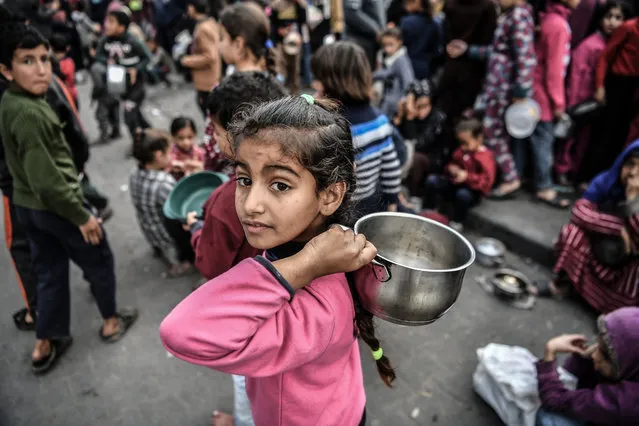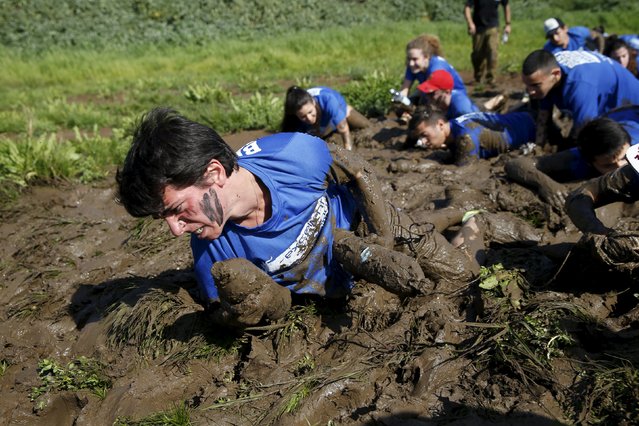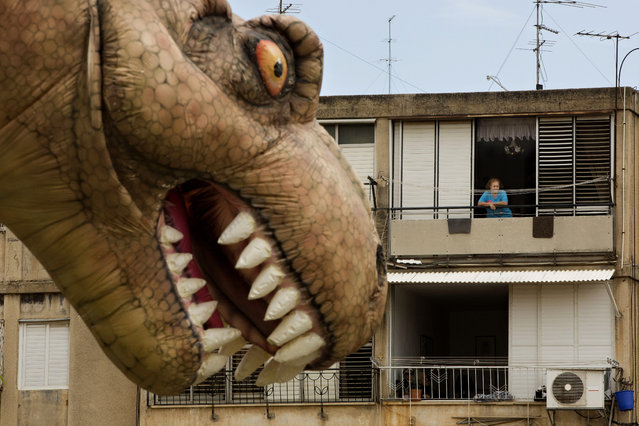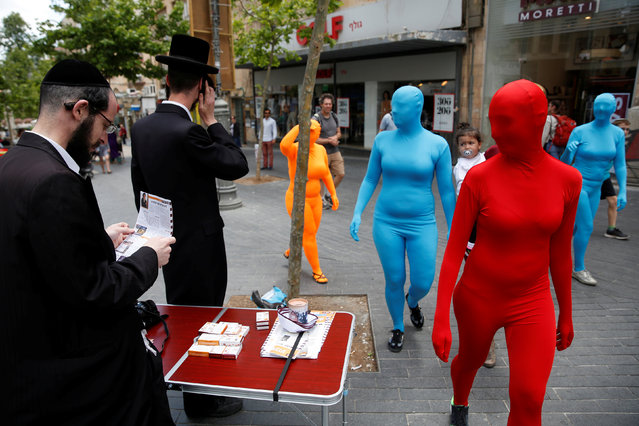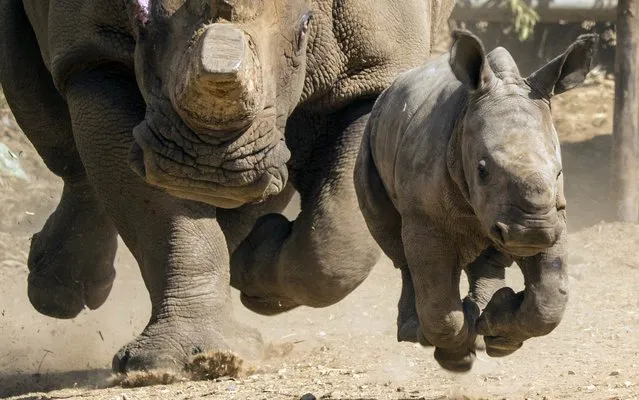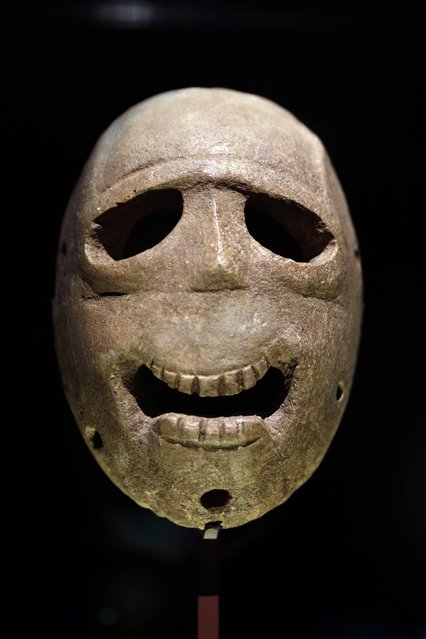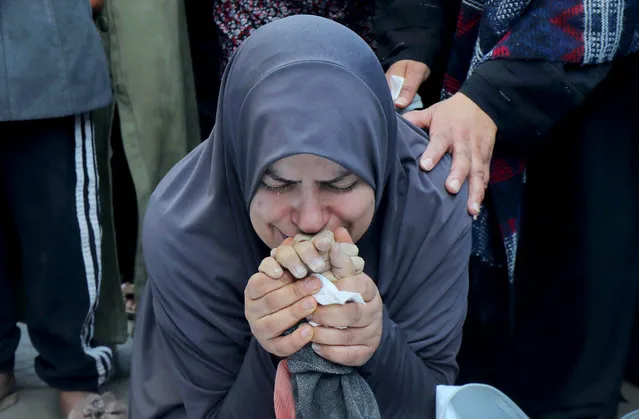
Palestinian mother Esma Zuhd cries after her children, Jahan and Ahmed Nasser who died after an Israeli attack at the Nuseirat Refugee Camp in Deir Al-Balah, Gaza on December 29, 2023. (Photo by Ashraf Amra/Anadolu via Getty Images)
05 Jan 2024 21:16:00,post received
0 comments

